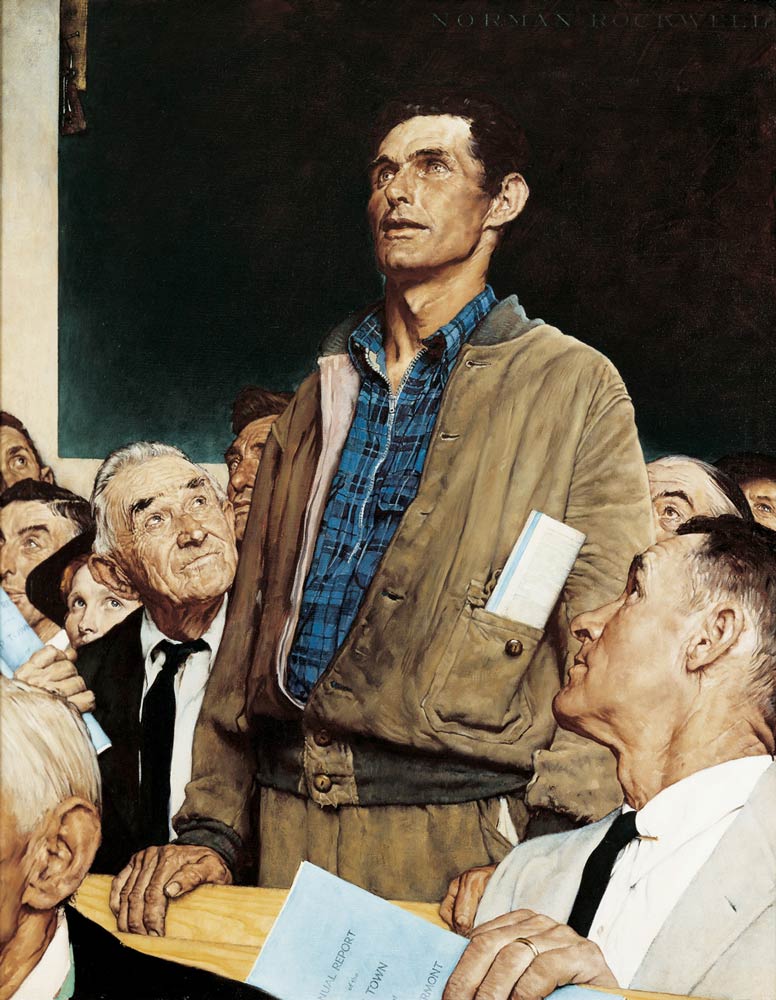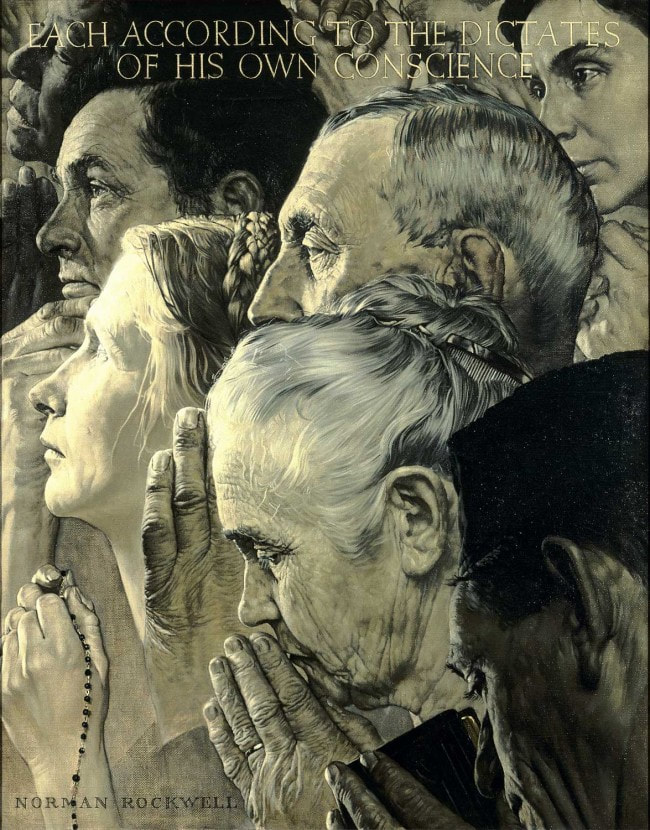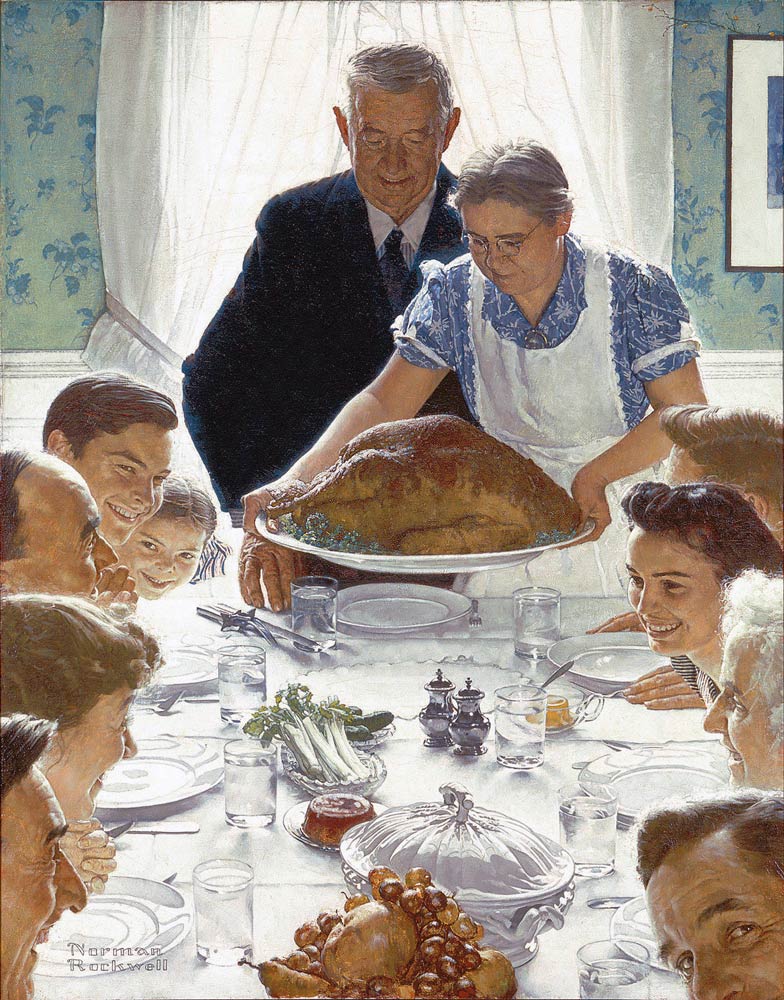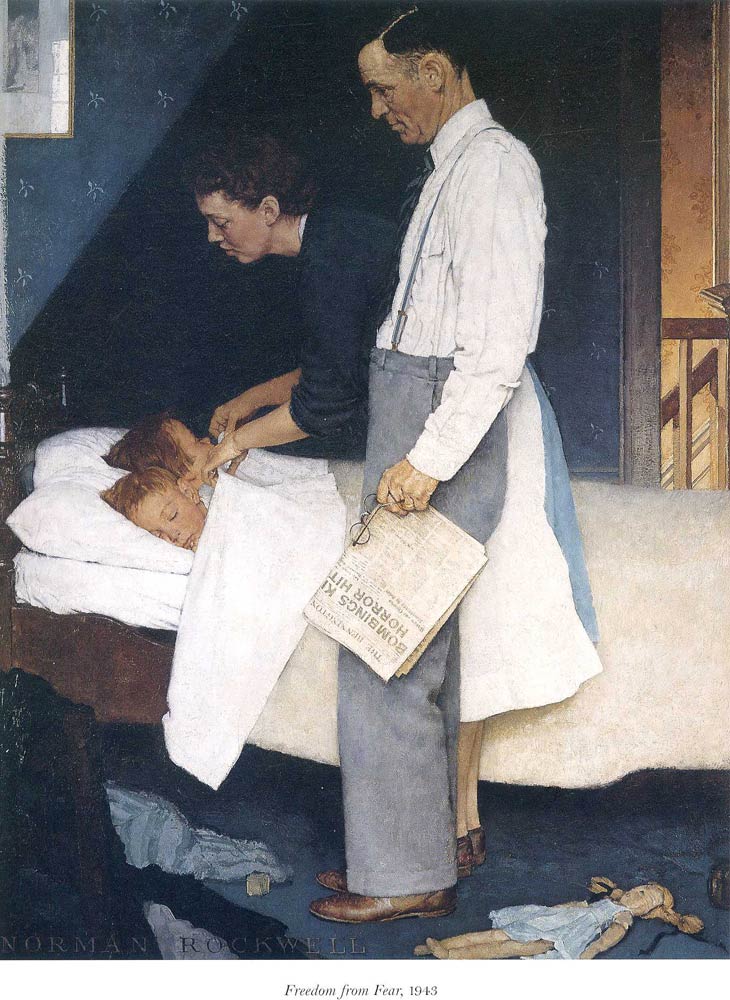Iwas stimulated to create this post because Bonnie and I recently went to an exhibit entitled “American Democracy: A Great Leap Of Faith” at the local Durham Museum, which features exhibits, local and touring, focused on history and culture. This specific exhibit was created by the National Museum of American History and adapted for touring by the Smithsonian Institution. For the local presentation, the Durham curators incorporated local stories and artifacts from its collections and other state institutions into the exhibition, resulting in a unique installation that visitors will not see elsewhere. The published “blurb” about it states:
Inspired by the new permanent exhibition at the National Museum of American History, American Democracy: A Great Leap of Faith, explores America’s bold experiment in a government “of, by, and for the people.” From the Smithsonian Institution, this exhibition is the centerpiece of a high-profile initiative on democracy and civics education. Featuring engaging multimedia experiences, immersive design, and artifacts from the Smithsonian and state historical organizations, American Democracy will demonstrate that democracy relies on our active participation in the quest to form a “more perfect union.” Exhibit sections explore the origins of our democracy, the changing identity of eligible voters, the machinery of democracy, the right to petition and protest beyond the ballot, and the rights and responsibilities of citizens.
One of the exhibit sections discusses what have been referred to as the “Four Freedoms.” This expression arose out of the State of the Union Address of President Franklin D. Roosevelt on January 6, 1941. That speech has come to be known as the “Four Freedoms” speech because, in it, FDR proposed four fundamental freedoms that people "everywhere in the world" ought to enjoy: Freedom of Speech; Freedom of Worship; Freedom from Want; and Freedom from Fear. It seems to me that Independence Day ought to be a day to celebrate those four freedoms and to vow to do what is possible to achieve them for all people. If that’s too political, well, that’s too bad. It’s not really all that radical. Far too many of us choose to forget that the Declaration of Independence (and the notion of a government which derived its power from its citizens) was, perhaps, the most singularly radical act in political history. At least since the trial and beheading of Charles I.
Anyway, seeing this part of the exhibit got me to thinking about these “Four Freedoms,” and it seemed particularly appropriate to do so at this time of year. So, here are some thoughts which this exhibit inspired in me. By the way, the main exhibit will be on tour throughout the country for about three years, but I don’t know specific dates and places. It’s worth visiting, if you get a chance.
The first of the “Four Freedoms” is Freedom of Speech. I am a rather strong supporter of this idea (as most people may know). To me, that means that people should have the right to have, and express, ideas which don’t necessarily conform to what is popular, or even “politically correct.” I remember when WCU was presenting The Laramie Project and we were picketed by “The Westboro Baptist Church,” the “God Hates Fags” people. I supported their right to have and speak their opinion, even though I also believed (still do) that their protests were (and are) deliberately intended to create controversy in the hope that people will rise to the bait and cause trouble so that they can sue for violations of their civil rights under the First Amendment. I’m pleased that the Western community, generally, simply observed (or ignored) the “church’s” protests, which I think was and is the most appropriate response to their “message.”
I also remember being confronted by an individual when we did The Fantasticks for promoting “rape culture” by performing “It Depends on What You Pay” using the original lyrics. That individual had a right to have and express her opinion, however stupid I felt it was. There ARE some legal limits on the Freedom of Speech in the US, but they are few, and have been rather tightly defined by the courts. One can’t yell “Fire!” in a crowded theatre, for example. Nor can one advocate the use of force with the intent to incite or produce imminent lawless action; or repeatedly encourage someone to commit suicide. Some forms of false statements are illegal, and some forms of obscenity and pornography are also non-protected speech. It appears that simple speech is unlikely to be legally “treasonous” since “Treason against the United States, shall consist only in levying War against them, or in adhering to their Enemies, giving them Aid and Comfort.” The exact details certainly require greater legal skills than I have, but it seems to me that the limits on Freedom of Speech are pretty few and far between, which I think is as it should be.
As is suggested in the Norman Rockwell picture below, Freedom of Speech means that a person should have the right to express his/her ideas without fear. That doesn’t guarantee that everyone (or anyone) else has to agree with you, just that you should have the right to express your ideas in a peaceful, public manner.
It was common at the time of the American Revolution, for most countries to have an official, “state” religion. I believe that I am correct in my understanding that many of the original colonies had “established” religions, which may well account for the enshrinement of “Freedom of Religion” in the First Amendment. While it is true that some form of Christianity was dominant in at least most of the founding colonies, without acceptance of the concept of freedom of religion, I think it unlikely that anything like the “United States” ever could have been created. It is also to be remembered that a fair number of the “Founding Fathers” were some variation of Deist and not Christian in the sense of supporting the idea of the divinity of Jesus, at all. These people were not non-religious, but they certainly supported the right of people to make up their own minds regarding religion.
My strong suspicion is that what Roosevelt intended (and I support) was that people ought to be able to have access to a reasonable standard of living: to have an adequate diet, adequate shelter, necessary medical care, appropriate clothing, necessary education, etc. It’s almost certainly too much to expect that everyone in the world is ever going to achieve a state which would allow the equivalent of a “Thanksgiving Day” feast such as is portrayed in Rockwell’s painting. Even in the US, most people don’t live like that every day. The important idea was that we, as a people, should seek a world which included treaties and trade practices which would provide for a healthy peace time life for all.
Now, I recognize that the details of those conditions are hard to agree on and even harder to establish, but I don’t think that it is likely to be accomplished by a society which seems to base the importance of an individual to a great extent on how much she/he owns in the way of material goods. If the only way we have of “keeping score” is by counting wealth, we are a very poor society. I’d like to suggest that what you try to do with what you have (be it wealth, time, or energy) for the betterment of the world as a whole might be a better way to keep “score.” No, I am not advocating Socialism, or Communism, but there is something wrong when a small few have MUCH more than they can ever use, and a large many are having trouble just getting by. A society which achieves a reasonable wage, adequate food and housing, appropriate education, decent medical care, etc., for everyone shouldn’t be impossible. Perhaps even for all the world ….
No, I’m NOT suggesting that a weapons-free world is, realistically, going to happen, even if it might be nice to be able to try that. But I think that we can, and should, do more to create a world where everyone recognizes that picking up a gun is unlikely to bring about a satisfactory solution to our personal, or social, challenges, whatever they may be. I’d like to try for a world where we can all agree to at least make a serious attempt to get along. It seems like that would be a desirable change and worth the effort.
LLAP




 RSS Feed
RSS Feed